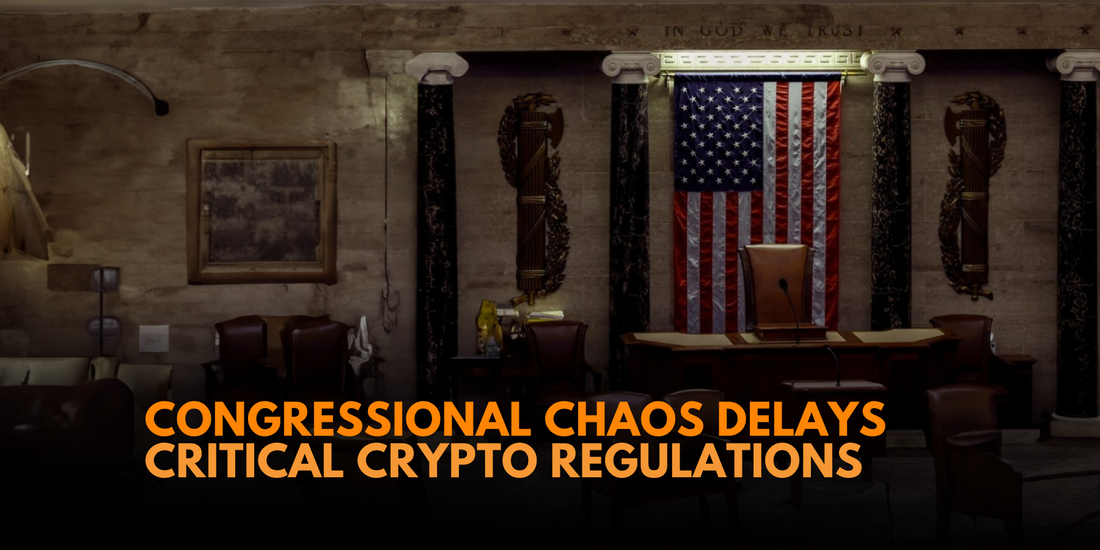
Chaos in Congress Delays Vital Crypto Legislation
The much-anticipated crypto legislation in the U.S. House of Representatives faces uncertainty due to leadership turmoil, threatening to disrupt the progress of crucial bills that could provide a regulatory framework for the crypto industry. While industry lobbyists are optimistic about the possibility of House progress by year-end, the Senate remains a significant hurdle.
The absence of clear regulatory guidelines from the U.S. Congress has left the crypto industry in a state of uncertainty, fearing that it may remain a volatile financial sector. However, the political landscape on Capitol Hill is riddled with drama, including the abrupt removal of the Speaker of the House and an ongoing budget debate that has the potential to derail the federal government.
Two crypto bills have garnered significant attention as they have progressed further than any previous legislation: one bill focused on establishing rules for digital asset markets and another aimed at regulating the issuance and trading of stablecoins in the United States. Up until now, crypto lobbyists believed that both bills had a chance to reach the House floor for consideration in November.
However, the situation has taken a complicated turn. A new deadline for a potential government shutdown looms on November 17, unless Congress can agree on a spending plan, a task it was unable to accomplish the previous month. The leadership vacuum in the House, created when Republicans removed the Speaker, Rep. Kevin McCarthy (R-Calif.), has further complicated matters.
Kristin Smith, CEO of the Washington-based Blockchain Association, commented on the situation, stating, "Given that there's such a distraction with everything else going on, it probably means no consideration of crypto bills in the short run."
Despite the turmoil, there is a possibility for lawmakers to continue working on crypto legislation while addressing the broader budget debate, as demonstrated by the House Financial Services Committee's efforts to pass a central bank digital currency (CBDC) bill during the previous spending debate.
Rep. Patrick McHenry (R-N.C.), the chairman of the Financial Services Committee responsible for advancing several crypto-related bills, now serves as the acting speaker. While McHenry is supportive of digital asset legislation, his new role leaves him with limited time to dedicate to the crypto agenda.
The selection of a new Speaker is imminent, with Reps. Steve Scalise (R-La.) and Jim Jordan (R-Ohio) vying for the position. Neither of these candidates has a track record of supporting crypto. Rep. Tom Emmer (R-Minn.), a fervent crypto advocate, aims to move up to the majority leader position, which would be a significant win for the crypto industry. However, the Republican Party's internal divisions may complicate this process.
The fate of digital asset bills in the House remains uncertain, with several potential outcomes, including failure, floor votes with subsequent challenges in the Democrat-controlled Senate, or integration into essential budgetary legislation. Lobbyists are also hoping to make edits to the bills during their legislative journey.
The Senate, however, shows less enthusiasm for crypto legislation compared to House Republicans. Key figures like Sen. Sherrod Brown (D-Ohio) and Sen. Tim Scott (R-S.C.) have not actively engaged with crypto legislation. Brown's focus is on the Secure And Fair Enforcement Regulation (SAFER) Banking Act, primarily addressing financial services for the marijuana industry.
As the end of the calendar year approaches, the political landscape becomes increasingly complex, with the looming presidential election year adding further complications to legislative progress. The crypto industry remains hopeful for regulatory clarity and innovation-promoting rules but must navigate the turbulent waters of Congress to achieve these goals.
